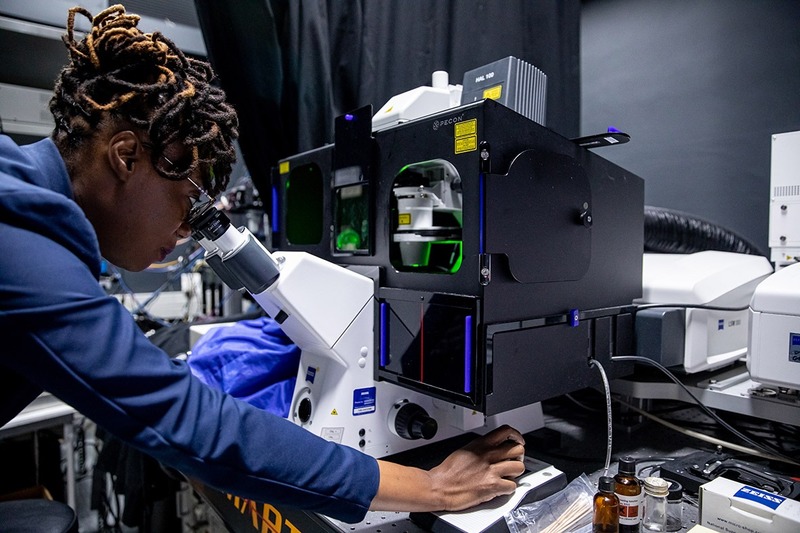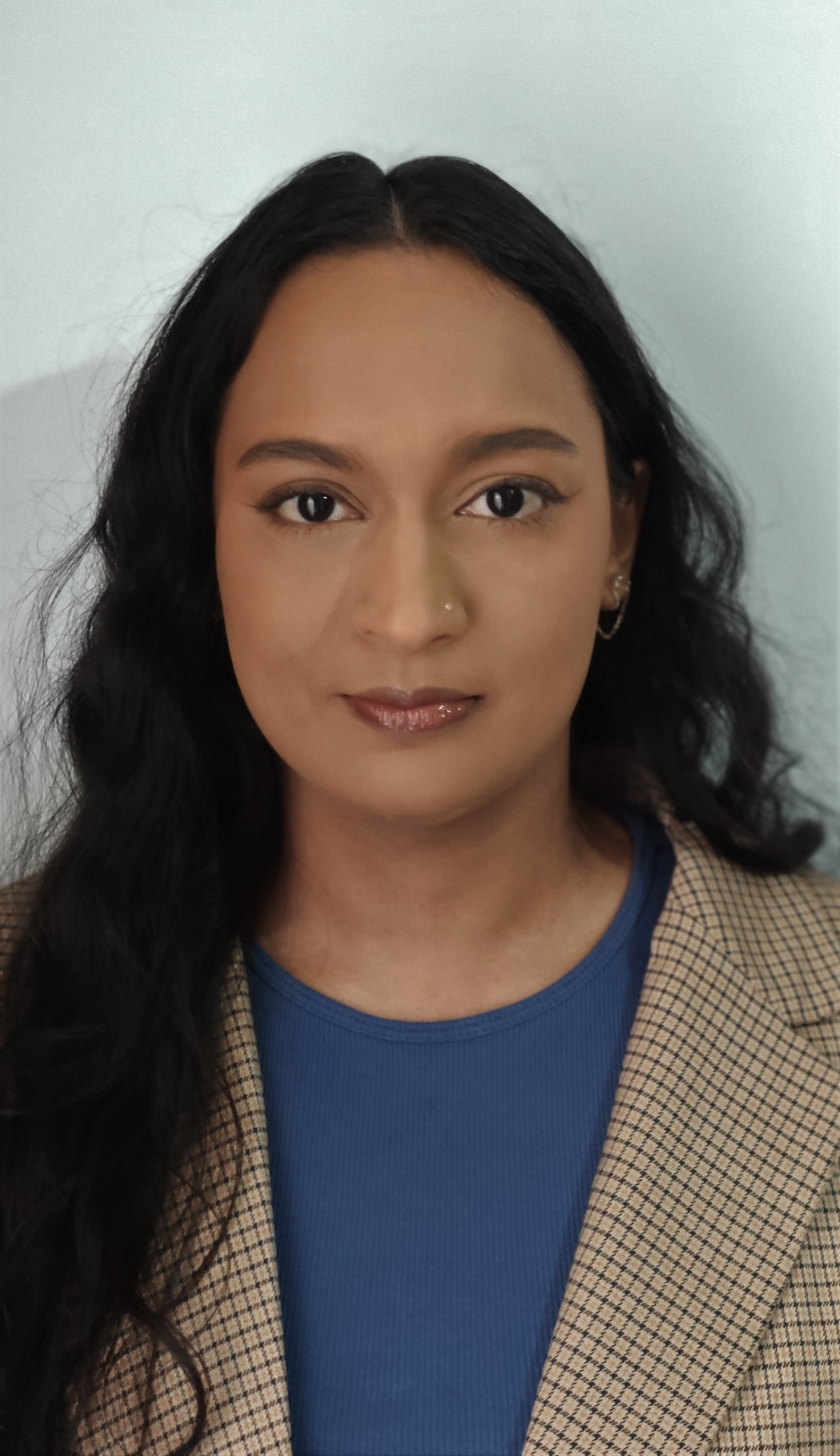UCT researchers land prestigious fellowship for trailblazing African health research
17 January 2024 | Story Linda Daniels. Photo Supplied. Read time 6 min.
Drs Alisha Chetty and Rachael Dangarembizi’s work will contribute to advancements in understanding and fill existing gaps in their respective fields of study. The University of Cape Town (UCT) researchers have been awarded the five-year Medical Research Council/UK Research and Innovation African Leaders Fellowship (MRC/UKRI). This honour empowers them to lead ground-breaking research, poised to make substantial contributions to scientific advancements originating from Africa.
The fellowship is awarded to scientists working in biomedical and health research areas who prioritise key health problems relevant to national and regional health needs. Recognised as ‘rising stars’, recipients of the fellowship are expected to, among others, establish and lead a research team, engage in original research and cultivate a track record of independence within their chosen field. In addition, demonstrating promise as a future research leader is a key expectation accompanying this prestigious award.
Dr Chetty is a Junior Research Fellow in Professor William Horsnell’s laboratory in the Division of Immunology at UCT’s Faculty of Health Sciences (FHS). Her research focuses on mucosal infections and their long-lasting effects in the body.
Dr Dangarembizi is a neurobiologist and the founder and principal investigator of the CryptoLab, a research group focused on studying mechanisms of brain injury caused by fungal infections. She is a senior lecturer in the Division of Physiological Sciences and a member of the Neuroscience Institute at FHS.
Unlocking health challenges in Africa through research

Chetty’s current research, ‘A gut feeling: How can gastrointestinal bacterial infections alter female reproductive tract (FRT) immunity and control of sexually transmitted infections,’ focuses on understanding the effects of intestinal infections on the immune balance in the female genital tract. The study explores how this impacts susceptibility to sexually transmitted infections (STIs), which may be unrelated but are highly prevalent.
In the context of Sub-Saharan Africa, STIs are taking a toll on women’s health and are a strain on healthcare systems.
“The study aims to fill the gaps in the understanding of how common bacterial infections in the intestine can affect the balance of the immune system and make the body more susceptible to infections. The main goal is to discover how these intestinal bacterial infections can impact female health, including the risk of STIs and fertility issues,” she said.
Additionally, this initiative lays a crucial foundation for future human studies, promising a better understanding of indirect influences on FRT health. It also provides significant contributions to future STI prevention and treatment efforts.
Cryptococcal meningitis is one of the greatest threats to African brain health and a huge burden on our health systems.
Meanwhile, Dangarembizi’s research focus area is borne from her experience as a neuroscientist who has, for the past 10 years, been studying brains and their relationship with fungal pathogens.
“Cryptococcal meningitis is one of the greatest threats to African brain health and a huge burden on our health systems,” she said about her decision to focus on the investigation of this brain injury.

Cryptococcal meningitis (CM) is a fungal infection that mostly affects people with weakened immune systems such as those living with HIV/AIDS, those who have undergone organ transplants and those who are on immune-dampening medications. Because of the huge burden of the HIV pandemic, Africa has the greatest number of people who develop and succumb to cryptococcal infections.
What makes the situation more dire is that currently, effective treatments for CM are both unaffordable and unavailable to those affected, most of whom live in poor urban communities or rural parts of Africa.
Dangarembizi explained: “Cryptococcal meningitis has been historically neglected in research, funding and policy. As a result, a lot is still unknown about its pathogenesis – particularly how it causes brain injury, the most common cause of death associated with the disease.
“This knowledge is critical to the process of developing better drugs and treatment approaches for the disease. Our work is focused on studying these disease mechanisms to inform the development of much-needed cheaper and more effective therapies.”
The brain is the main organ of injury in the fatal disease of CM, yet very little is known about how this injury occurs. This knowledge gap is one of the greatest limitations to treating and managing the disease and why she focuses her investigative lens on this work.
The context of sub-Saharan Africa presents higher incidences, prevalence and mortality rates of the disease than in the rest of the world. For example, Sub-Saharan Africa alone has 75% of all cases and deaths due to CM.
Personal acknowledgement of the Fellowship
Both Chetty and Dangarembizi centre better health outcomes in Africa as their main motivation for their research.
“Their [MRC/UKRI] investment in our research efforts is one of the greatest things that has happened to me as an early-career black African scientist. It’s a strong affirmation that we are capable of using science to create solutions for African problems. I’m ready to rise up to that challenge,” said Dangarembizi.
Chetty added: “As a South African female researcher it is my ambition to address infectious diseases of women in Africa. This award is a great honour and supports cutting-edge science driven by African women on the continent, for the betterment of African women.”
Both their research holds much promise for advancing their respective fields and contributing to improved health outcomes in Africa.
 This work is licensed under a Creative Commons Attribution-NoDerivatives 4.0 International License.
This work is licensed under a Creative Commons Attribution-NoDerivatives 4.0 International License.
Please view the republishing articles page for more information.
Research & innovation





































